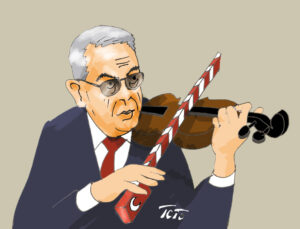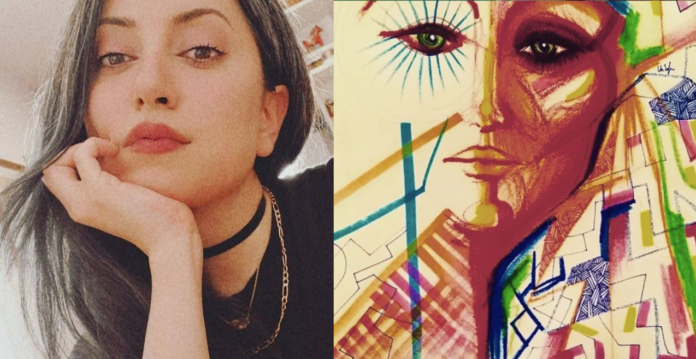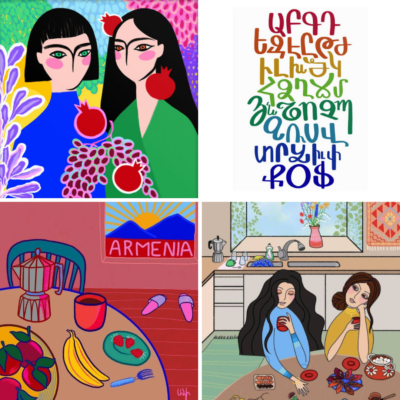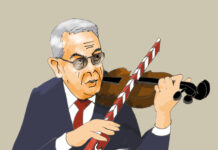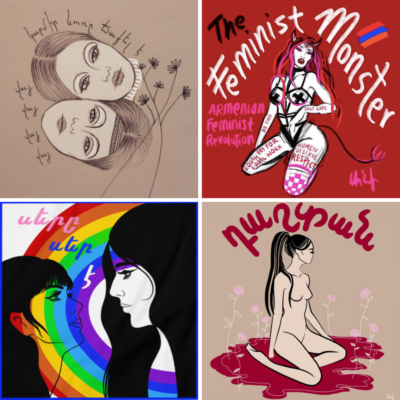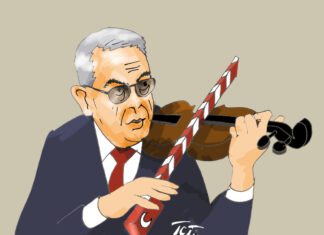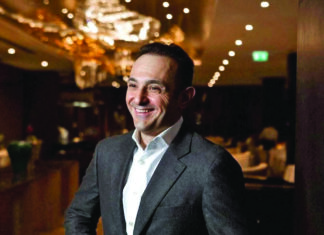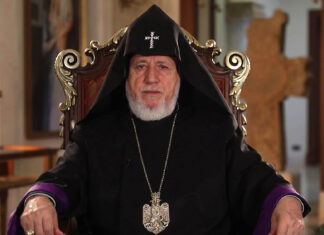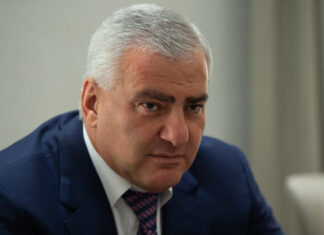LOS ANGELES — Artist, attorney, and candidate for a master’s degree in clinical psychology, 31-year-old Ani Khodaverdian founded her brand, Telo Jan, in 2019. Since then, Ani’s artwork has empowered, educated, and connected Armenians all over the world with each other and to the homeland. With nearly 7,000 followers, Telo Jan’s Instagram account is a space where Ani shares her artwork and creative process, mental health resources and information, and social justice and social awareness-centered content.
Between Cultures
Ani’s parents immigrated to Sweden from Iran, and Ani was raised in Sweden until she was nine years old. Although Ani only spent her early childhood in Sweden, she explained just how greatly that period of her life impacted her: “Attending Swedish public school really shaped my thinking because they are extremely progressive and environmentalist there. I grew up seeing women in politics and female priests, and even that at school, boys and girls would always play together. There was never a separation of ‘boys do this and girls do that.’ My parents also never put those sort of ideas in my head about what I can and can’t do. They are both dentists who studied and worked together, so equality was present in my own life and home growing up.”
Ani inherited Armenian culture and language from her proud Armenian-Iranian parents, but she hardly encountered Armenians outside of her own household.
Things took an exciting turn for her, when at 9-years old, Ani and her family moved to Burbank, a city with over 8,000 Armenian residents. Her Armenian identity became especially salient in Burbank, and at the age of 10, she began utilizing the public library system to learn more about Armenian culture and history, particularly the Armenian Genocide.
Ani shared: “When I was 11, I had a philosophical crisis. I wondered, how is it possible that genocide happens? I read The Black Dog of Fate by Peter Balakian which went into the details of the genocide quite graphically. I remember my childhood ending during certain lines of that book. I went into my TV room and started sobbing about it all to my parents. My dad sat with me for four or five hours and he explained that, yes those things happen, yes it’s unfair and that’s why it’s so important to be a good person and fight for justice so this doesn’t happen to anyone else. I read 20 more books about the Genocide and it became my cause at that time.”
